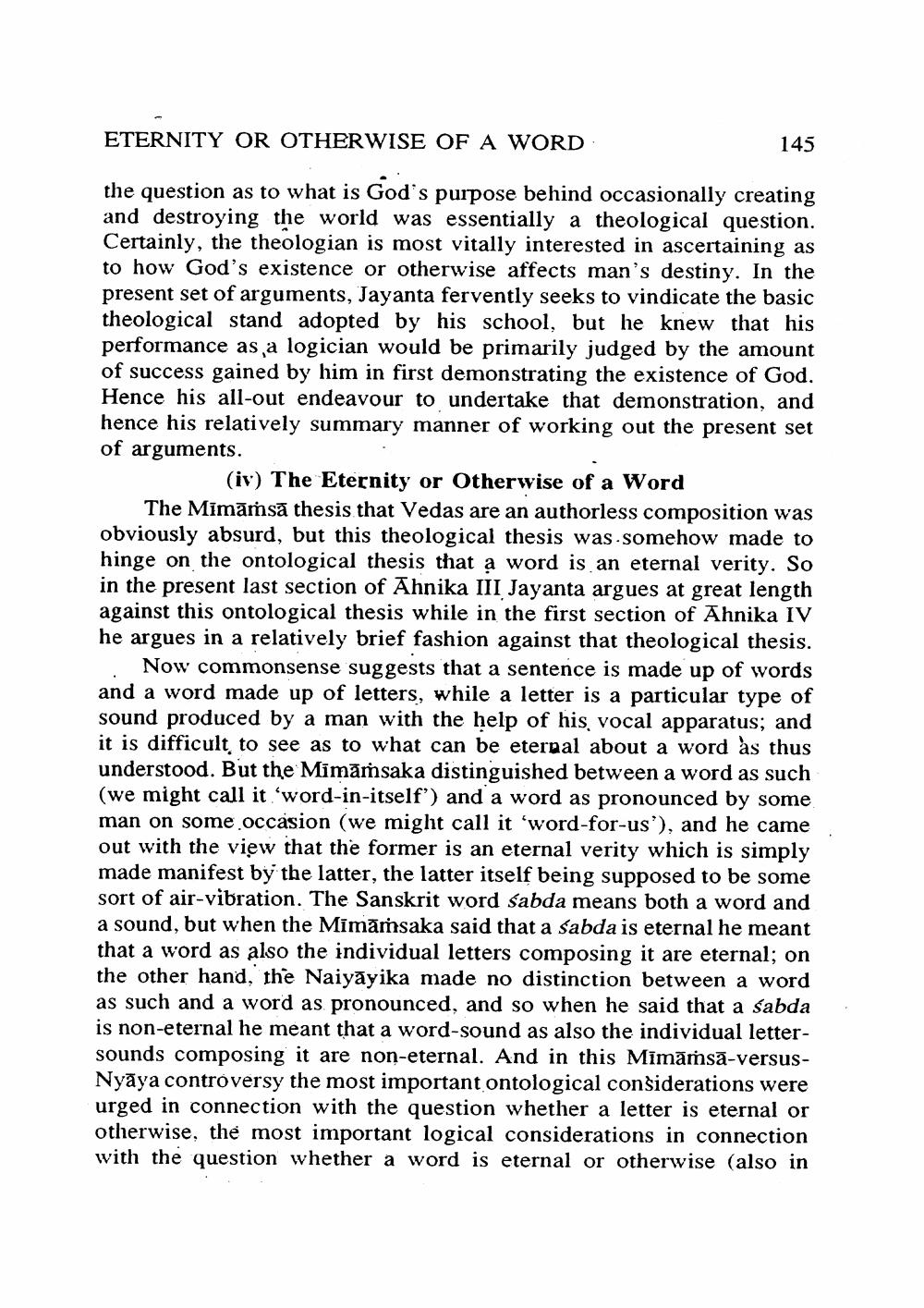________________
ETERNITY OR OTHERWISE OF A WORD
145
the question as to what is God's purpose behind occasionally creating and destroying the world was essentially a theological question. Certainly, the theologian is most vitally interested in ascertaining as to how God's existence or otherwise affects man's destiny. In the present set of arguments, Jayanta fervently seeks to vindicate the basic theological stand adopted by his school, but he knew that his performance as a logician would be primarily judged by the amount of success gained by him in first demonstrating the existence of God. Hence his all-out endeavour to undertake that demonstration, and hence his relatively summary manner of working out the present set of arguments.
(iv) The Eternity or Otherwise of a Word The Mimāṁsā thesis that Vedas are an authorless composition was obviously absurd, but this theological thesis was somehow made to hinge on the ontological thesis that a word is an eternal verity. So in the present last section of Ahnika III Jayanta argues at great length against this ontological thesis while in the first section of Ahnika IV he argues in a relatively brief fashion against that theological thesis.
Now commonsense suggests that a sentence is made up of words and a word made up of letters, while a letter is a particular type of sound produced by a man with the help of his, vocal apparatus; and it is difficult to see as to what can be eternal about a word as thus understood. But the Mimāṁsaka distinguished between a word as such (we might call it 'word-in-itself') and a word as pronounced by some man on some occasion (we might call it 'word-for-us'), and he came out with the view that the former is an eternal verity which is simply made manifest by the latter, the latter itself being supposed to be some sort of air-vibration. The Sanskrit word sabda means both a word and a sound, but when the Mimārsaka said that a sabda is eternal he meant that a word as also the individual letters composing it are eternal; on the other hand, the Naiyāyika made no distinction between a word as such and a word as pronounced, and so when he said that a sabda is non-eternal he meant that a word-sound as also the individual lettersounds composing it are non-eternal. And in this Mimāṁsā-versusNyāya controversy the most important ontological considerations were urged in connection with the question whether a letter is eternal or otherwise, the most important logical considerations in connection with the question whether a word is eternal or otherwise (also in




